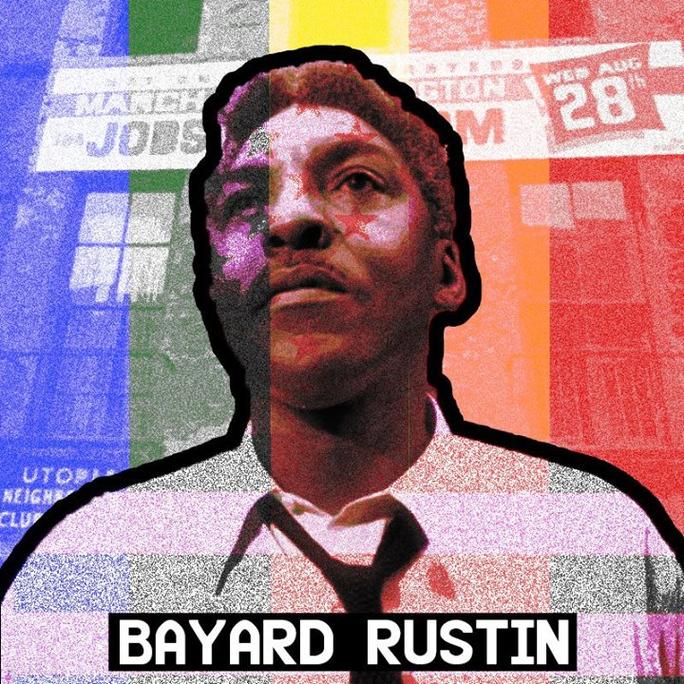
During Black History Month, we will be profiling past and present leaders in the intersecting movements to protect and expand the rights of African Americans and working families. We'll highlight both important leaders of the past and those who are continuing the legacy of those strong leaders who laid the foundation for the present. First up, we take a look at Bayard Rustin.
Rustin served the trade union and civil rights movements as a brilliant theorist, tactician and organizer. In the face of his accomplishments, Rustin was silenced, threatened, arrested, beaten and fired from leadership positions because he was an openly gay man in a severely homophobic era. He conceived the coalition of liberal, labor and religious leaders who supported passage of the civil rights and anti-poverty legislation of the 1960s and, as the first executive director of the AFL-CIO's A. Philip Randolph Institute, he worked closely with the labor movement to ensure African American workers' rightful place in the House of Labor.
One of Rustin's most notable moments came when he was tapped to organize the 1963 March on Washington for Jobs and Freedom, an event for which he was posthumously awarded the Presidential Medal of Freedom. Organized during a two-month period, Rustin helped create what would be the largest protest in America's history at that point. Rustin has been referred to as the "most important civil rights leader you've never heard of" and a key mentor of Martin Luther King Jr.
The manual that was handed out by Rustin and other leaders of the march made it clear that economic and workers' rights were an integral part of the fight for civil rights for African Americans. The list of demands central to the march included a massive job training and placement program with a living wage, a national minimum wage that gave all Americans a decent standard of living an expanded Fair Labor Standards Act and a federal Fair Employment Practices Act that would prohibit discrimination not only by the government, but by employers and unions, too.
“We are all one. And if we don’t know it, we will learn it the hard way.” —Bayard Rustin

